Rethinking the History of Technology-based Music
Rethinking the History of Technology-based Music
Centre for Research in New Music (CeReNeM), University of Huddersfield
University of Huddersfield 9-11 June 2022
As Modernist thinking, evident in concrete, electronic and computer music from their inception, has been challenged by the post-acousmatic, neo-modern situation today, conceptual approaches and the use of sound to points to situations and events outside of itself have become more the rule than the exception in new musical practices, providing context, identity and often intent. These factors, alongside pluralistic, ecological, feminist and de-colonization agendas that question who determined the canon, who has been listening, to what and to whom make it timely for us to question, re-evaluate and rethink the history of technology-based music.
The continued expansion of digital technologies including machine learning and AI has radically changed the production, engagement, and dissemination of sound and music for composers, musicians, listeners, media content creators and casual music users. The constant everyday exposure to electronic or processed sounds has influenced listening skills and listening intentionality broadly, and ideas of what constitutes valuable sound experiences have expanded radically. Improvisation and participation have found ways into this new socio-acoustic space where the formal hierarchies of Kultur, virtuosity, and on preserving institutionalised accepted aesthetics have become less dominant. Much of this engaged art can arguably be seen as artistic responses to the increasingly noticeable consequences of the Anthropocene situation of rapid digitisation, technical development of communication, services, commerce, and organisational structures.
This stronger focus and inclusive awareness on the cultural and social aspects of music has also begun to find expression in new research and scholarship. In light of these developments, this conference seeks to revisit the development of technology-dependent music and investigate whether there have been practices, tendencies and elements that have previously been overlooked. It aims to question whether the biases embedded in the canon of technology-based music be revisited, can we expect to uncover hidden gems, can we hope to arrive at a more comprehensive understanding of music's development and new role in this post-acousmatic period?
Collected abstracts
Conference videos
Keynote Speakers
Linda O'Keefe
University of Edinburgh
Simon Waters
Queen's University Belfast
Invited Speakers
Leila Adu-Gilmore
New York University
Philipp Ahner
Trossingen University of Music
Manuella Blackburn & Paul Harkins
The Open University
Edinburgh Napier University
Arild Boman
University of Oslo
Dylan Burchett
Louisiana State University
Jaehoon Choi
Rensselaer Polytechnic Institute
Simon Crab
Independent Researcher
Ulf A. S. Holbrook & Jøran Rudi
University of Oslo
University of Huddersfield
Joseph Hyde
Bath Spa University
Annie Jamieson
National Science and Media Museum
Andrew Knight-Hill
University of Greenwich
Hans Kretz
Stanford University
PerMagnus Lindborg
City University of Hong Kong
Tomoya Matsuura, Kazuhiro Jo & Akihiro Kubota
Tokyo University of the Arts
Kyushu University
Tama Art University
McArthur, Martin, Margetson & Sheth
University of Greenwich
University of Greenwich
University of Greenwich
University of Greenwich
Manoli Moriaty
Liverpool Hope University
Treya Nash
Louisiana State University
Giovanni Onorato & Riccardo Ancona
Royal College of Music, Stockholm
The Institute of Sonology
Amit D. Patel
University of Greenwich
Radivojević, Keller & Lazzarini
University of Bern
Federal University of Acre / Federal University of Paraíba
Maynooth University
Irine Røsnes
University of Huddersfield / University of Wolverhampton
Marcel Zaes Sagesser
Southern University of Science and Technology Shenzhen
Fulya Uçanok
Istanbul Technical University / Istanbul Bilgi University
Notto J. W. Thelle & Bernt Isak Wærstad
Norwegian Academy of Music
Norwegian University of Science and Technology / Norwegian Academy of Music / University of Oslo

Observations and entanglements: The early stages of the analogue-digital shift in music’s infrastructure and organisation
Simon Waters (Queen's University Belfast)
Simon Waters joined the staff of the Sonic Arts Research Centre, Queen’s University Belfast in September 2012, moving from his previous role as senior lecturer and Director of Electroacoustic Studios at the University of East Anglia (1994 - 2012). He is also an associate researcher of the Orpheus Instituut, Gent (2016-present). In the 1980s he established a reputation as a composer of electroacoustic music, working with many of the world’s major contemporary dance companies. His more recent work is at least as concerned with human conduct (what people do musically) as with how things sound. He teaches performance and composition, and has also taught courses in interaction design, improvisation, and music and material culture. He is preoccupied by instrument making in the broadest sense, which leads him both to build experimental instruments and to research the technologies on which music depends, whether these are historical or contemporary.
He has supervised over fifty research students in areas as diverse as improvising machines and autonomous instruments, inexpertise in musical interaction, silence and silencedness, sound and the built environment, digital ethnography, post-club music, and the 3D modelling of historic instruments, as well as in more explicitly ‘compositional’ areas. His publications are similarly diverse, recent examples exploring empathy and ethics in improvised conduct, woodwind instrument production in eighteenth century London, the notion of the ‘local’ in a ubiquitously digitized world, and hybrid physical/virtual instrument design.
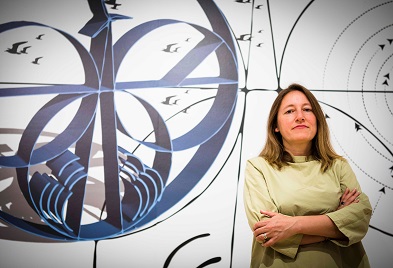
Representing Alternative Histories of Sound in the Arts
Linda O'Keefe (University of Edinburgh)
Dr Linda O'Keefe is a research led artist working and living in Scotland and has exhibited internationally with commissions from Europe, the UK, Brazil, Asia and the US. Her current body of practice is focused on the intersection of science & technology, ethics and communication, where she has produced a number of art works, published research papers and keynote presentations. In 2017 she was commissioned to develop a body of work for the touring exhibition Sounds Like Her, the work, Hybrid Soundscapes I-IV has been shown in major UK art galleries from 2017 to 2020, and has been featured in publications exploring the role of women in sound. She is currently working on a project funded by Creative Scotland titled Evolving Ourselves with Unnatural Selection, a new collaborative project between artists and researchers that will explore and present some of the ethics and future implications of gene editing through a digital multi-arts approach.
Her work on gender inclusion in the sonic arts has led to the development of the organisation Women in Sound Women in Sound WISWOS, which has partnered with organisations in the UK, Latin America and recently Taiwan. WISWOS’s goal is to make visible women who work in the multitudinous areas of sound from music technology to sound art, sound and society, the politics of sound, and every area in between. It has created a number of events, workshops and commissioning opportunities for women around the world. WISWOS’s most recent funded project involved a collaborative project with the Taiwanese organisation Ting Shuo Hear Say to create an opportunity for UK and Taiwanese women working in sound and experimental music to create an album together, Elastic Parallels. In July 2022 O Keeffe and WISWOS network member Isabel Nogueira, will launch the co edited book The Body in Sound, Music and Performance, with Routledge, this selected 22 key women writing and working in the areas of sound, performance and music, where discourse or dissemination through practice are strongly reflective of the body as a notional process as well as an actualised reality within the space of sound.
www.lindaokeeffe.comhttps://evolvingourselves.non-random.co.uk/
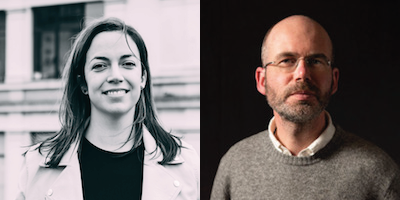
Finding the female users: A feminist historiography of the Fairlight CMI
Manuella Blackburn (The Open University)
Paul Harkins (Edinburgh Napier University)
Manuella Blackburn is a lecturer based at The Open University. Her award-winning practice-based research in electroacoustic music explores micromontage, compositional methodologies and brevity in music making. Her recent composition, Farewell Fairlight (2021) was awarded 3rd Prize at the GRM Découvertes composition contest. Her research also extends to the study of sampling and sample library use. She is currently a recipient of an AHRC EDI Engagement Fellowship which explores the representation of culture and non-Western instrument sounds on online sample pack distribution platforms.
Paul Harkins is a lecturer in music at Edinburgh Napier University. His book, Digital Sampling: The Design and Use of Music Technologies explored sampling practices across a range of musical worlds and was published by Routledge in 2019. He has published articles in Popular Music, Popular Music & Society, IASPM@Journal, Journal on the Art of Record Production, and Reseaux and co-edited a special issue of Popular Music on Music and the Anthropocene. As well as recent research about digitalisation and democratisation, he is developing new projects about the feminist historiography of sampling and the use of technologies in domestic spaces.
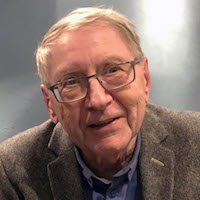
Antinomies of Net/Satellite Communication: Strategies of Musical Interaction. On research experimentation since the 1960s
Arild Boman (University of Oslo)
Arild Boman (1940, Norway) sociologist, communication researcher, graduated 1970, and has worked at the Institute for Social Research and the University of Oslo. Since 1972 he has conducted MediaCulture projects focusing on initial encounters with new technology: in VR, interactive satellite- and net-communication with musicians, visual artists, and dancers. He has conducted international projects on youth culture, tehnology and art in Europe, Africa, and Asia. His experimentation started in 1961 with early computer and video works, like Data Morgana and Video Significator?, and church music Ecumene 1969. He started the video art teaching at the Norwegian Academy of Art, 1974, and the first African Video Art Workshop, Festac, Lagos 1977. From 1982 he conducted Influence from beneath with residents’ control of their local broadband nets; and from 1986 MediaCulture/Knowledge Channel transmissions of satellite tv-education, video art/Media Art Gallery, and science programs from the University of Oslo - from 1996 with the Norwegian Broadcasting Corporation.
Boman has composed music for film, theater and tv, and played and recorded with jazz musicians like George Russell, Karin Krog; rhythm&blues with Public Enemies; and in his own bands with Jan Garbarek, John Christensen, etc. His works have been shown at Biennale de Paris 1969, Expo 2000, Venezia Biennale 2003, the Norwegian National Museum of Art 2012, Oslo House of Artists 2021.
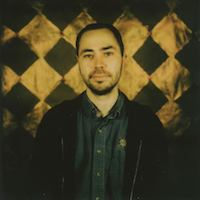
Repurposed Items as Nonhuman Actors: Towards a Relationally-Defined Organology
Dylan Burchett (Louisiana State University)
Dylan Burchett does a variety of sound-related things that frequently involve materials powered by electricity. Much of his work involves investigating the theatrical and narrative capacities of reused and repurposed physical and/or sonic materials placed in improvised settings, though the degree to which each of these aspects are present often varies. Dylan has performed and toured extensively as both a solo performer and as a collaborator and/or member of groups including Hooves, hh, Ulandylna, Silica Gel, Ghost Food, and Murder Sewage. Outside of performance settings, Dylan has worked as a speaker technician and audio engineer in Florida, Louisiana, and the California Bay Area. Dylan received an MFA in Electronic Music and Recording Media from Mills College in 2018, a BFA in Music Composition from the New College of Florida in 2015, and is currently pursuing a PhD in Experimental Music and Digital Media at Louisiana State University.
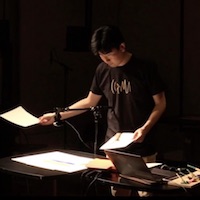
Max - Expansion From a Programming Paradigm to a Distributed Lab
Jaehoon Choi (Rensselaer Polytechnic Institute)
Jaehoon Choi (b. 1992) is a computer musician / sound artist / researcher who is based in New York and Seoul. His practice is focused on situating embodiment in an intermediary space, with the focus on sound, sonic experience, and computer music. As a researcher, he is interested in contextualizing his own practice in a broader discourse, using retrospection as a methodology to arouse new directions. His works have been performed at festivals and symposiums such as ICMC, Art Center Nabi, EIDF, Visions Du Reel, CEMEC UCSD, CEMEC Stanford, Bing Concert Hall, and received commissions from ZER01NE, Korea Creative Content Agency and etc. He also collaborated with incredible artists in different disciplines such as Sariel Golomb (Dance/Theatre Art) and Yeon Park (Film). Jason is currently pursuing a Ph.D. in Electronic Arts at the Rensselaer Polytechnic Institute and graduated from Stanford University's Center for Computer Research in Music and Acoustics (CCRMA) as a Masters.
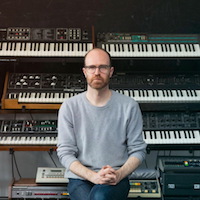
Reconnections: Electroacoustic Music & Modular Synthesis Revival
Neil O Connor (University of Limerick)
Composer and performer Neil O Connor studied at Trinity College, Dublin (M.Litt/PhD Electroacoustic Music) has been involved in experimental & electro-acoustic music for the past two decades and has performed in Ireland, Europe, Australia, Asia and the US. His work has been shown/performed at MOMA, New York, IRCAM Paris, Institute of Contemporary Art, London and has held residencies at the Massachusetts Museum of Modern Art and EMS – Swedish Institute of Electro-Acoustic Music, Stockholm, Sweden. He has worked / collaborated with members of the Crash Ensemble, Phillip Glass Ensemble, the Glenn Branca Ensemble, Bang On a Can Ensemble and the RTE Symphony Orchestra. His electroacoustic works have won award and mentions at Noroit-Léonce Petitot (Arras, France), Euphonie D’Or des Concours International de Musique Electroacoustique (France), Musica Nova Electroacoustic Music Competition, (Czech Republic). Neil has published with Bloomsbury, Routledge and Cambridge University Press and is currently based at DMARC, Digital Media Arts Research Centre, University of Limerick, Ireland.
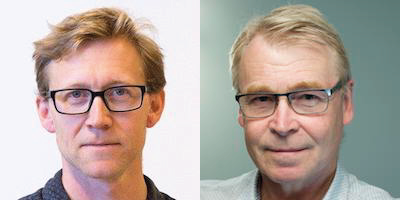
The expanding fields, practices and histories of technology-based music
Ulf A. S. Holbrook (University of Oslo)
Jøran Rudi (University of Huddersfield)
Ulf A. S. Holbrook works with sound in a variety of media, including composition, improvisation, electronics, sculpture, installation, text and research. His primary interest is in the representation of space and place through sound, through spatial audio, sonification, field recording and custom software. He holds a PhD in music technology from the University of Oslo. His work is performed internationally.
Jøran Rudi has his education from New York University, and has pioneered the digital development of music in Norway as composer, studio director (NOTAM 1993-2019), technologist and historian. He is currently professor at University of Huddersfield. His most recent publications include the book Electric Sound in Norway (Elektrisk lyd i Norge, Novus, 2019), and contributions to the books Digital Dynamics (Intellect, 2019), Ubiquitous Music Ecologies (Taylor & Francis, 2020), Between the Tracks (MIT Press, 2020) and Electronic Art in Norway, vol. 1 (Elektronisk Kunst i Norge, bind 1, 2021). He has also has served on the editorial board of the journal Organized Sound since 2001. www.joranrudi.no
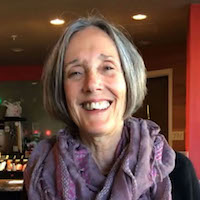
Socially engaged art reflects ‘an interest in producing effects and affect in the world rather than focusing on the form itself’
Brenda Hutchinson (The College of San Mateo)
Brenda Hutchinson is a composer and sound artist. Through her work with large-scale experiments in socially based improvisations and interactions, Brenda has developed a body of work based on a perspective about interacting with the public and non-artists through personal, reciprocal engagement with listening and sounding. Brenda is the recipient of the Gracie Allen Award from American Women in Radio and Television and has received support from the National Endowment for the Arts, Lila Wallace, McKnight Foundation, NY State Council on the Arts and Meet the Composer among others. She has been an artist in residence at Mills College, San Quentin Prison, Headlands Center for the Arts, Harvestworks, Exploratorium, Ucross and Djerassi. She is currently on the Music faculty at the College of San Mateo in California.
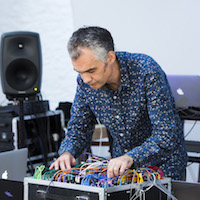
Tracing Music Technology to its Interdisciplinary Roots
Joseph Hyde (Bath Spa University)
Joseph Hyde is Professor in Creative Music Technology at Bath Spa University, UK. His academic research centres around the history of ‘visual music’, where he has contributed to many books on the subject. He has directed the visual music symposium Seeing Sound since 2009. He also works as an artist – his sound and audiovisual works have been performed worldwide. He often works with collaborators - scientists, engineers, artists and dancers/choreographers – within a fluid interdisciplinary context.
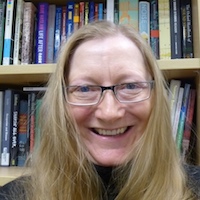
What are we conserving? Functional conservation for music technology in museums
Annie Jamieson (National Science and Media Museum)
I am a historian of science and technology, with a PhD in the history of medical technologies from the University of Leeds. As Curator of Sound Technologies at the National Science and Media Museum (part of Science Museum Group), I have introduced the material history of sound into our collections and exhibitions, establishing the Sound Technologies collection in 2017. In 2021, I curated the museum’s first ever sound-focussed exhibitions: Sonic: Adventures in Audio, and Boom: Experiments in Sound.
My research interests include the history of live music production, the art/science boundary in audio mixing, historical understandings of hearing risk and hearing protection in relation to the music and sound industries, and developing ways to effectively engage museum audiences with sound objects on gallery. I am currently Co-investigator on the AHRC Research Network project, Original Cast Recordings: Musical Theatre and/as Sonic Heritage.
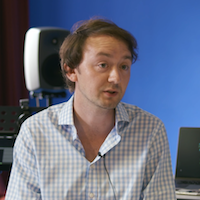
Convergence Potential in Parallel Praxis: Electroacoustic Music and Sound Design
Andrew Knight-Hill (University of Greenwich)
Andrew Knight-Hill is a composer who specialises in studio based compositions both sonic and audiovisual. He is Associate Professor of Sound Design and Music Technology at the University of Greenwich and lead of the SOUND/IMAGE Research Group. He is an AHRC Leadership Fellow researching "Audiovisual Space: Recontextualising Sound Image Media" and Co-Investigator on two AHRC research grants, "Exploring Cultural Diversity in Experimental Sound" and "Sonic Palimpsest: Revisiting Chatham Historic Dockyards". His recent site-specific compositional work for "Over Lunan" formed a major feature of an immersive promenade performance in the sand dunes at Lunan Bay Scotland as part of the Arbroath 2020+! festival and has been adapted for radio broadcast and future release.

Toward a Civil Engineering of Music: A media-archaeological approach in the development of “mimium,” the programming language for music
Tomoya Matsuura (Tokyo University of the Arts)
Kazuhiro Jo (Kyushu University)
Akihiro Kubota (Tama Art University)
Tomoya Matsuura is SoundMaker, who makes sound and music and systems and environments for sound. From the viewpoints of media-archaeology and design research, he pursues the critical re-construction of fundamental technological infrastructure surrounding musical environments. Recent projects are "Aphysical Unmodeling Instrument", a sound installation that physically reconstructs a physical-modeling synthesizer, "Exidiophone", an audio-feedback-based electro-acoustic instrument, and "mimium", an infrastructural programming language for sound and music. He was born in 1994 and is a Ph.D. in Design - currently the project assistant professor at Art Media Center at Tokyo University of the Arts. https://matsuuratomoya.com
Born in Fukushima, 1977. Ph.D. in Design. Kazuhiro Jo is a practitioner with a background in acoustics and interaction design. He has been presenting his practices in a form of works of art as at museums and festivals, as well as papers at international journals and conferences with his projects such as “The SINE WAVE ORCHESTRA” as a participatory music project to create a collective sound representation, “Life in the groove” as a practice at the intersection of media archaeology and personal fabrication, and “phono/graph” to explore the field of sound, letters, and graphics with artistic practices.
Akihiro Kubota is currently the professor of Art and Media Course in the Information Design Department at Tama Art University. His pioneering interdisciplinary hybrid projects include the ARTSAT Project (ARTSAT.JP) which launches personal art satellites into space, BioArt, and sound performances by live coding and handmade instruments. His team’s first art satellite ARTSAT1:INVADER won the Award of Distinction of the Hybrid Art of Prix Ars Electronica in 2015, and the entire ARTSAT Project received the 66th Minister of Education Award for Fine Arts (Media Arts Division).
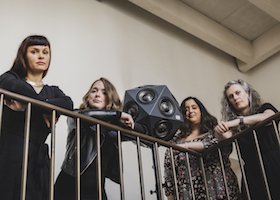
Women in Spatial Sound – Working with the IKO Loudspeaker
Angela McArthur (University of Greenwich)
Brona Martin (University of Greenwich)
Emma Margetson (University of Greenwich)
Nikki Sheth (University of Greenwich)
Angela McArthur is sound artist and academic focused on non-human onto-epistemologies. She founded Soundstack, an event centred around spatial sound aesthetics, and initiated the first UK tour of IKO works, including her own, in 2019.
Brona Martin is an electroacoustic composer and sound artist. She is currently a Research Associate, on the AHRC funded project, A Sonic Palimpsest: Revisiting Chatham Historic Dockyards and a Research Fellow, in the SOUND/IMAGE Research group at the University of Greenwich.
Emma Margetson is an electroacoustic composer and sound artist. She is a Lecturer in Sound Design and Research Fellow (AHRC project - Audiovisual Space: Recontextualising Sound-Image Media) at the University of Greenwich.
Nikki Sheth is an internationally recognized sound artist and composer. Her practice involves field recording, soundscape composition, installation and soundwalking. She uses sound to bring a voice to the environment and was nominated for an Ivor Novello in 2021.
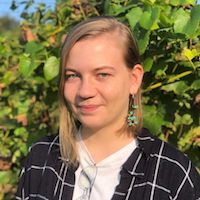
An analytical approach to the carefully constructed sound world in Alice Shields’ Apocalypse
Treya Nash (Louisiana State University)
Treya Nash is an English composer who has studied in England, Germany, Italy, eSwatini, China, and the United States. She graduated with a BA in composition from the University of Florida with Paul Koonce. She graduated with an MM in composition from the University of North Carolina at Greensboro where she studied with Mark Engebretson and Alejandro Rutty. She previously worked as the Program Director at Charlotte New Music. Treya has had her work performed internationally at events and festivals in the UK, the US, Germany, and Brazil. She is currently studying composition and electronic music at Louisiana State University, with Mara Gibson, Jesse Allison, and Steven David Beck, and is researching electronic opera.
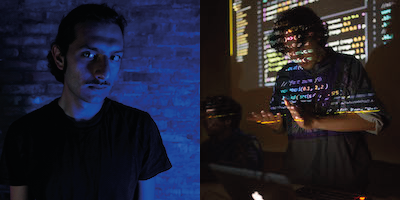
RAISE THE CURTAIN! A critical perspective on the idea of Post-Acousmatic
Giovanni Onorato (Royal College of Music, Stockholm)
Riccardo Ancona (The Institute of Sonology)
Giovanni Onorato (1995) is an electroacoustic composer from Palermo, his interests span from acousmatic composition to electroacoustic improvisation. He holds an Electronic Music bachelor’s degree at Conservatorio G. B. Martini in Bologna and is currently enrolled for the electroacoustic composition master programme at Royal College of Music in Stockholm. He is a member of Elettronica Collettiva Bologna, a collective for promoting electroacoustic music, and Senza Distinzione di Genere lab, an improvisation workshop taking place at Labàs (Bologna).
Riccardo Ancona (1997) is a composer, improviser, creative coder, and music writer based in the Netherlands. He graduated in Electronic Music with a thesis on live coding at Conservatorio Licinio Refice under the mentoring of Alessandro Cipriani. He is currently doing a research master at the Institute of Sonology exploring the perception of sonic materialities in process-based composition. Interested in divulgation and pedagogy of electroacoustic music, he writes articles, teaches privately, and curates music events and releases.
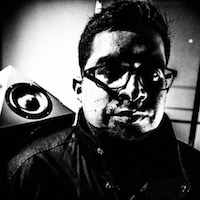
Exploring Cultural Diversity in Experimental Sound
Amit D. Patel (University of Greenwich)
Amit D. Patel, aka Dushume, is an experimental noise and sound artist, influenced by Asian underground music and DJ culture. His work focuses on performing and improvising with purpose built do-it-yourself instruments, and recording these instruments incorporating looping, re-mixing and re-editing techniques. Lack and loss of control are central to his work. He has a PhD in Music, “Studio Bench: the DIY nomad and Noise Selector” (2019), from the Music, Technology and Innovation Research Centre, De Montfort University, Leicester, UK. He is a member of the Sound/Image Research group at the University of Greenwich, London, and Principal Investigator for the AHRC Research Grant “Exploring Cultural Diversity in Experimental Sound” (2021-22).

Issues of Ubimus Archaeology: Creative Processes in Risset’s Little Boy
Nemanja Radivojević (University of Bern)
Damián Keller (Federal University of Acre / Federal University of Paraíba)
Victor Lazzarini (Maynooth University)
After graduating in guitar at the Academy of the Arts in Novi Sad, Nemanja Radivojević pursued his studies in music theory at the Haute école de la musique de Genève and in composition at the Hochschule der Künste Bern (HKB). His music is performed worldwide. Radivojevic is currently working as a teaching assistant at the Composition Creative Practice Department at the HKB and as a scientific researcher in the project on non-equidistant microtone-music of 20th and 21st century «In hommage from the multitude» supported by the Swiss National Science Foundation. He is a Ph.D. candidate in the SINTA program of the University of Bern (Prof. Dr. Anselm Gerhard and Dr. Roman Brotbeck). Radivojevic has been active as a music critic in the Swiss music journal for research and creation Dissonance.
Damián Keller is an associate professor of music technology at the Federal University of Acre and the Federal University of Paraíba in Brazil. He is a cofounder of the international research network Ubiquitous Music Group and a founding member of the Amazon Center for Music Research (NAP). He has published over two hundred articles on ubiquitous music and´ecologically grounded creative practice in journals on information technology, design, education, philosophy and the arts. His latest coedited book is Ubiquitous Music Ecologies (Routledge). http://ccrma.stanford.edu/~dkeller
Victor Lazzarini is a graduate of the Universidade Estadual de Campinas (UNICAMP) in Brazil, where he was awarded a Bachelor of Music in Composition. He completed his doctorate at the University of Nottingham, UK, where he received the Heyman scholarship for research progress and the Hallward composition prize for a large-scale work, Magnificat. Dr. Lazzarini received the NUI New Researcher Award in 2002 and the Ireland Canada University Foundation scholarship in 2006. He has authored over one hundred articles in peer-reviewed publications in his various specialist research areas. He is the author of Aulib, an object-oriented library for audio signal processing, and is one of the project leaders for the Csound sound and music programming system. Dr. Lazzarini is a professor at Maynooth University. He recently completed the co-edition of Ubiquitous Music Ecologies, as well as a new research monograph Spectral Music Design: A Computational Approach.

Tracing ecosystemic virtuosity in performance of Simon Emmerson’s Stringscape (2010) for violin and electronics
Irine Røsnes (University of Huddersfield / University of Wolverhampton)
I am a violinist, academic, improviser and specialist in performance of mixed music for violin. Currently completing a PhD project at the University of Huddersfield titled ‘The Violining Body: Toward an ecosystemic approach to performance of mixed music for violin’, I have presented numerous premieres across Europe, United Kingdom and North America and appeared at festivals such as Huddersfield Contemporary, Borealis, Gaudeamus, Chicago New Music, Wonderfeel and Yorkshire Silent Film. Educated in Bergen, Düsseldorf, Utrecht and Chicago, my concert repertoire extends from the music of the early Baroque era to works of the 21st Century, including improvised musics as a member of acclaimed improvising quartet Frame Ensemble. I am passionate about educating and inspiring women to explore music and sound technologies through my work with Yorkshire Sound Women Network. I am a Research Associate at the University of Wolverhampton where I am developing new approaches to performance co-creation supporting social cohesion.
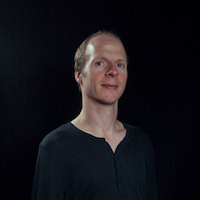
Rethinking Time Keeping Histories: (Mechanical) Time Grids as Imagined and Social
Marcel Zaes Sagesser (Southern University of Science and Technology Shenzhen)
Marcel Zaes Sagesser, also known under the artist name Marcel Zaes, Assistant Professor of the School of Design at Southern University of Science and Technology, Shenzhen, is an artist and researcher in sound, digital media and music composition. He holds a PhD in Computer Music and Multimedia from Brown University. Both his research and his artistic practice focus on the manifold ways in which humans craft their relationships with sounding technologies. His work is located at the intersection of sonic materiality, the technologies of sound (re)production, digital rhythm machines, and popular culture. As an artist, he often deploys rhythm machines to craft moments of togetherness, hesitation, and doubt. Producing installations, concert works, and video works, he holds an extensive international gallery and concert record, has published twelve music albums to date, has been awarded a number of grants and art prizes, and he has repeatedly been an artist in residence.

Electroacoustic Composition Process as a Process of Com-position
Fulya Uçanok (Istanbul Technical University / Istanbul Bilgi University)
Fulya Uçanok is an electroacoustic musician and pianist; composing electroacoustics, performing piano (inside-piano techniques) and electronics, in solo and ensemble settings. Born in Turkey, she studied Eurogenetic classical music under piano at Hacettepe University State Conservatory, and completed her master’s degree in Istanbul Technical University, Advanced Studies in Music (MİAM). Afterwards, she studied the performance and socio-musical tradition of Balinese “Gender Wayang” at Institut Seni Indonesia Denpasar, Bali. Upon her return, she began her doctoral studies at İTÜ MİAM, Sonic Arts Department, weaving her interests within the domain of electroacoustic music composition and performance practices. Her current interests include, response-able sounding practices with humans and more-than-humans, practices of material agency with instruments, and accessibility without popularization within the medium of electroacoustic music composition and performance practices. She is currently a PhD candidate in Sonic Arts department in İÜ MİAM, and a research assistant at Istanbul Bilgi University music department.
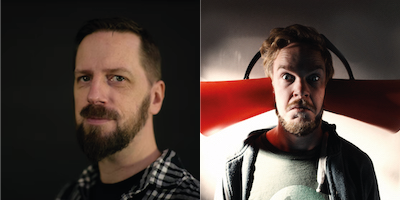
Co-Creative Spaces: “Rethinking the History of Technology-based Music”
Notto J. W. Thelle (Norwegian Academy of Music)
Bernt Isak Wærstad (Norwegian University of Science and Technology / Norwegian Academy of Music / University of Oslo)
Notto J. W. Thelle is a researcher and a musician who recently submitted his PhD thesis at the Norwegian Academy of Music in Oslo. His thesis “Mixed-Initiative Music Making” examined the creative tradeoff between user control and computational autonomy in interactive music systems. Before starting with his PhD, he was Director of NOTAM – Norwegian Centre for Technology, Art and Music in 2012–17, and Board Chairman of PNEK – Production Network for Electronic Art in Norway 2015–19.
Bernt Isak Wærstad is an interdisciplinary artist with a MA in Music Technology from the Norwegian University for Science and Technology (NTNU). His genre and medium changing artistic expression tends to bring him to the edges of the artistic fields he’s operating within. Dialogical meetings with the new and unknown, be it people or technology, are at the core of his artistic practise. Wærstad has also been lecturing live electronics at NTNU, Norwegian Academy of Music and University of Oslo for the past 12 years. In 2018 he was awarded a government working grant for younger artists.
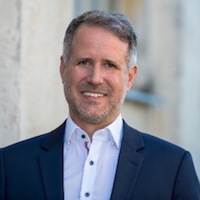
Didactic changes in sound compositions with synthesizer apps
Philipp Ahner (Trossingen University of Music)
Philipp Ahner (Dr. phil.) is vice president of Trossingen University of Music and professor of music education in the context of digital media at the “Landeszentrum MUSIK-DESIGN-PERFORMANCE” of Trossingen University of Music. He is networked nationally and internationally through memberships in expert committees and boards and is a regular guest at various expert conferences. His current research focuses on music didactic research with digital technologies in adolescence as well as in teacher training. Previously, he was Professor for Music Didactics at the University of Music Detmold, lecturer at the seminar for teacher training and didactics, as well as head of department and teacher for music, business and history at a vocational school center.
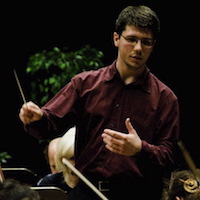
Networked performance as a space for collective creation and student engagement
Hanz Kretz (Stanford University)
Hans Kretz is a pianist, conductor and researcher. He holds a PhD in philosophy (Université Paris 8 Vincennes - Saint-Denis) and in Music from the University of Leed. He is currently artistic and musical director of the Stanford New Ensemble. His main research area is philosophy of culture.
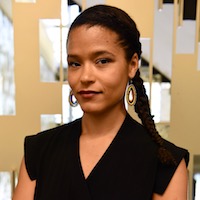
Critical Sonic Practice: Inclusive Research through Global Electronic Music
Leila Adu-Gilmore (New York University)
Composer-theorist Leila Adu-Gilmore has performed her original piano songs and improvisations alongside international artists at festivals and venues in Europe, the US, Russia, Ghana and Asia with over twenty releases including five solo albums, including two for Italian National Radio. In 2022, Adu-Gilmore received the Charles Ives’ Fellowship from the American Academy of Arts and Letters. She has composed for Bang on a Can, the London Sinfonietta, the Crossing, the Brentano String Quartet, So Percussion, Gamelan Padhang Moncar, and Orchestra Wellington, as well as performing and having compositions performed at Ojai Music Festival, and Magdalena Opera. A Ghanaian New-Zealander born in London, Dr Adu-Gilmore is passionate about black and indigenous music, decolonization and social change. Her writing on Ghana, electronic music and decolonization has been published in Critical Studies in Improvisation journal and the Music Technology Cookbook (Oxford University Press), Electronic Cities: Music Policies and Space in the 21st Century and Journal of Continental Thought & Theory and presented at Huddersfield University, EHESS & IRCAM. Dr Adu-Gilmore received her BMus from Victoria University, NZ; Phd from Princeton University, and is an Assistant Professor in New York University’s music technology program.
http://www.leilaadu.com/
https://steinhardt.nyu.edu/people/leila-adu-gilmore
https://wp.nyu.edu/criticalsonicpracticelab/
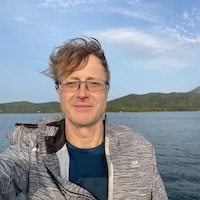
Re-scaling Beethoven: very long, very short
PerMagnus Lindborg (City University of Hong Kong)
PerMagnus Lindborg, PhD, is a research-driven composer and sound artist, author of more than a hundred media artworks and compositions, commissioned or selected for ArtScience Museum (Singapore 2021), Osage Gallery (Hong Kong 2021), Banga Gallery (Hong Kong 2020/21), CubeFest (Virginia 2019), Berlin Konzerthaus (2018), Xuhui Museum (Shanghai 2017), Tonspur (Vienna 2016), National Gallery (Singapore 2015), Onassis Centre (Athens 2014), World Stage Design (Cardiff 2013), Moderna Museet (Stockholm 2008), Centre Pompidou (Paris 2003), etc. Won awards for short films at World Film Carnival (2021), Cannes Short, and TIFF (2020), and for composition at SSO [First Prize] (Norway 2002), Forum [Audience Prize] (Canada 1996), Young Artist and TONO Awards (Norway 1998, 1999, 2003). Referred publications in PLoS One, Leonardo, Applied Acoustics, Frontiers, Applied Sciences, JAES, IRCAM-Delatour, Springer-LNCS, and conference proceedings such as SMC, ICMC, ICMPC, NIME, and ICAD. Serves as Regional Director for Asia-Oceania of the International Computer Music Association, and as Associate Professor at the School of Creative Media, City University of Hong Kong.
Exploring the mystical origins of Electronic Music
Simon Crab
Simon Crab is a sound artist and composer working with digital technology and video and audio programming languages. SImon’s work has been released by numerous record labels over the last decades and he regularly performs at events across the world. Simon is the author of the highly regarded online project ‘120 Years of Electronic Music’ which traces the history of electronic musical instruments. Simon was awarded a PhD from the University of Huddersfield in March 2022 with a thesis titled ‘Instruments
of Division: The Role of Audio Technology in the Transition From the Weimar Republic to the Nazi State.’
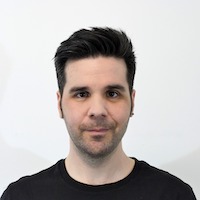
Upsetting the controls: controllerist practice in electroacoustic music performance
Manoli Moriaty (Liverpool Hope University)
Manoli Moriaty is a music maker, performer, and researcher. Much of his work investigates the processes and interactions that emerge in collaborative practice. Regularly working with dancers, actors, and visual artists, their creative outcomes represent the dialogue between the interdependent media, cultures, methodologies, and aesthetics that comprise each partnership. His practice draws influence from sound art, noise improvisation, post-acousmatic music, and rave culture, while his research employs methodologies from the fields of Human-Computer interaction, ethnomusicology, and Practice as Research. His written work is published by Taylor and Francis, Springer, Routledge, and Cambridge University Press, he has received project funding by Arts Council England and Sound & Music, and has taught and delivered guest lectures in China, Estonia, Greece, and Sweden. He holds a PhD from the University of Salford (2019), and in September 2020 he was appointed Lecturer in Music Production at Liverpool Hope University.
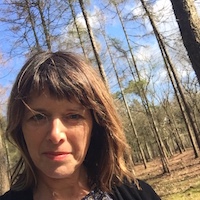
Shifting modalities in contemporary music practices including technology
Rose Dodd (University of Utrecht)
Rose Dodd is a composer who also writes about and reviews contemporary music. Publishing Writing to Louis, commentaries on Life in Music (Lecturis) in 2019, and Perspectives on the Music of Christopher Fox, Straight lines in Broken Times (Routledge) in 2016, her first monograph Reinbert De Leeuw, Aesthetic butterfly effect (onomatopee) is forthcoming.
Working across genres she has produced ambient works for hardanger fiddle and electronics (mobius ii, Sound Festival 2014, Rikscenen, Oslo 2012, HCMF 2011: for two pianos, prepared piano, ambient electronics & atrium, (aandacht performed Philip Thomas, Lisa Ullen, HCMF 2013): & music for harpsichord, and electronic glitch (kinderspel, State of the Nation, London 2000; Prix Ars electronica, Linz 1999).
Studying initially at Dartington College of Arts, composition studies continued at Koninklijk Conservatorium, Den Haag. With a Masters in Electronic Composition, University of Birmingham, she was awarded her PhD in Composition from University of Huddersfield in 2006. In the mid-noughties she oversaw the development of music for a series of prize-winning toys manufactured by UK, Huddersfield-based multi-national Mamas & Papas. Based in Amsterdam, since 2011 she has pursued intensive research of the Norwegian contemporary music scene, supported often by Music Norway, nymusikk and Notam.
Organizing Committee:
Prof. Monty Adkins
Leverhulme Professor Jøran Rudi
Abstracts were peer reviewed by Dr Manuella Blackburn (Open University), Dr Adam Stanovic (London College of Communication), Dr Ulf Holbrook (University of Oslo), Dr Rose Dodd (Utrecht University) and from the University of Huddersfield Dr Eddie Dobson, Prof Monty Adkins & Prof Jøran Rudi.